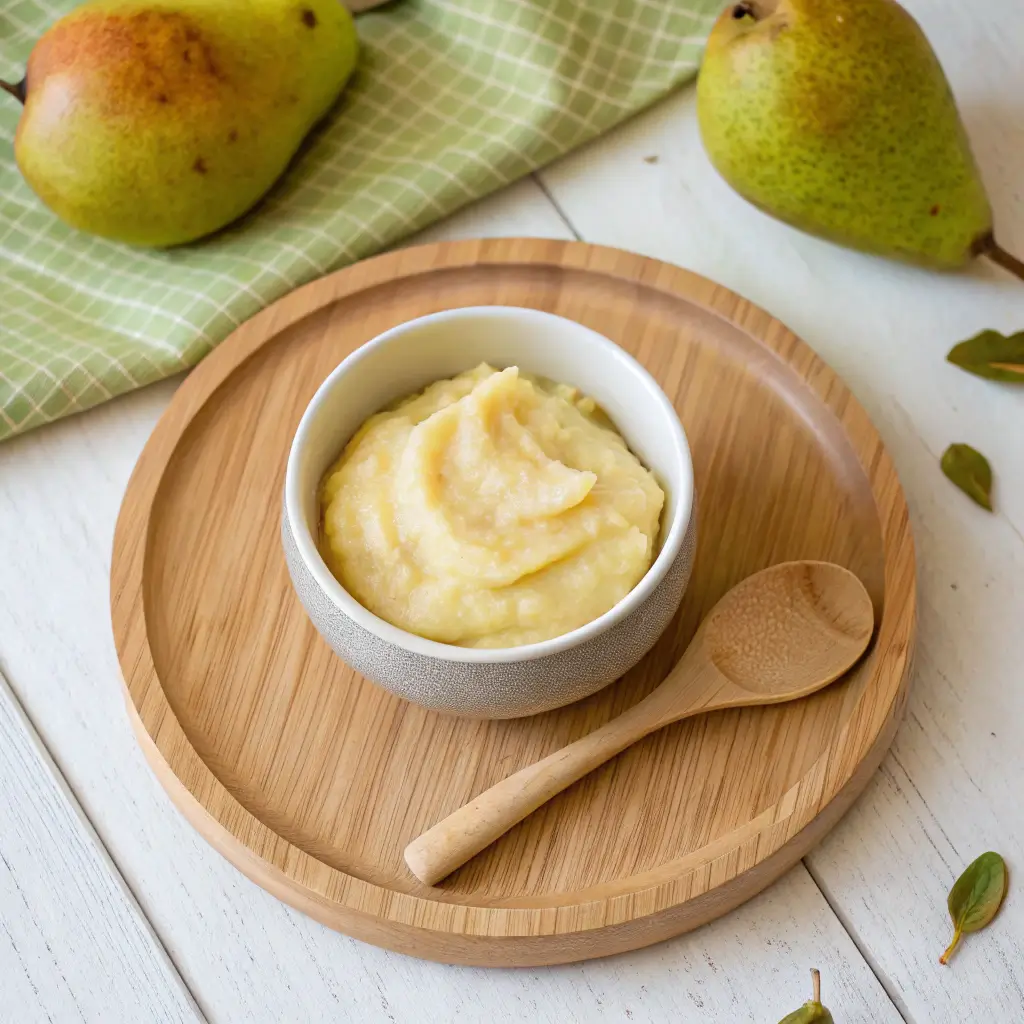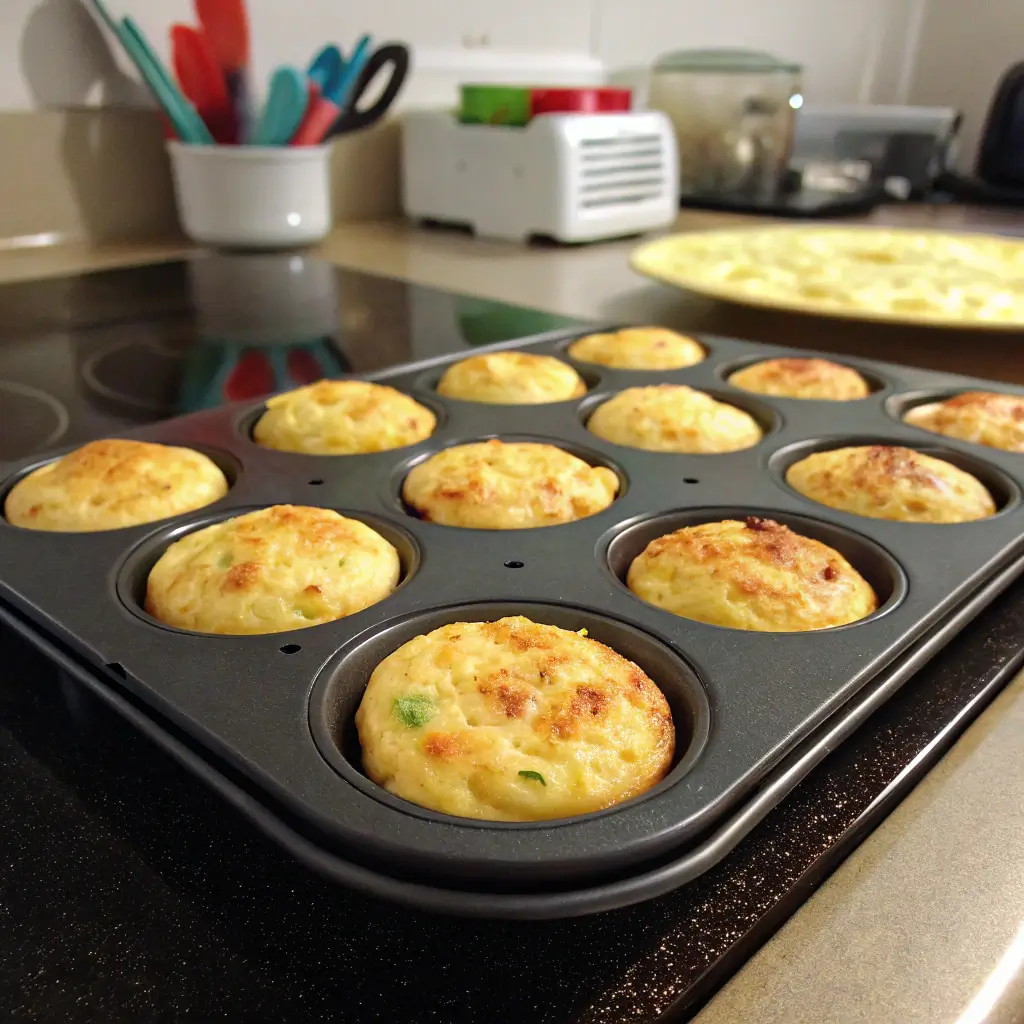
Introducing solids is a huge milestone in your baby’s development—and one of the most exciting stages for parents. Among the many first food options, cottage cheese for babies is rising in popularity thanks to its soft texture, gentle flavor, and impressive nutrient profile. But how do you serve it safely? Is it truly healthy for your little one?
In this guide, we’ll explore everything you need to know about feeding cottage cheese to your baby—from when to introduce it, to tasty ideas like cottage cheese pancakes for baby or egg bites. You’ll also learn how it compares to yogurt, what additives to avoid, and how to pick the best baby-friendly brands.
Learn more about the benefits of dairy in baby diets in our Cottage Cheese Nutrition: The Ultimate Guide.
Table of Contents
Table of Contents
The Nutritional Benefits of Cottage Cheese for Babies
What Makes Cottage Cheese Baby-Friendly?
Cottage cheese is a standout option when it comes to early nutrition. It’s rich in protein, calcium, and healthy fats—three elements essential for an infant’s growth and brain development. Unlike aged cheeses, it’s fresh and soft, making it easier for babies to gum or swallow depending on consistency.
Because of its neutral taste, babies are less likely to reject cottage cheese when first introduced. Plus, it can be easily blended with fruits or vegetables to create naturally sweet or savory purees.
Here’s a quick look at the nutritional breakdown in 1/4 cup of whole milk cottage cheese (ideal for babies):
| Nutrient | Amount | Benefit |
|---|---|---|
| Protein | 6–8g | Supports muscle and tissue growth |
| Calcium | 60–80mg | Essential for bones and teeth |
| Fat | 5–7g | Brain development & energy |
| Vitamin B12 | 0.3–0.5mcg | Nervous system & red blood cells |
| Sodium (Low-sodium brands) | <100mg | Safer for infant kidneys |
Including cottage cheese for baby offers a balanced way to introduce dairy without the strong flavors or textures of other cheeses.
Essential Vitamins & Minerals Found in Cottage Cheese
Cottage cheese is more than just a protein powerhouse. It contains critical nutrients your baby needs in the first year:
- Vitamin B12: Needed for healthy nerve function and red blood cell production.
- Phosphorus: Helps with bone and tooth formation.
- Riboflavin (Vitamin B2): Supports cellular energy.
- Zinc: Aids immune development and healing.
These nutrients contribute to both physical and cognitive growth. When paired with other first foods, cottage cheese helps round out your baby’s nutritional foundation.
When & How to Introduce Cottage Cheese to Your Baby

Age Guidelines for Starting Cottage Cheese
According to pediatricians and the American Academy of Pediatrics, most babies can start eating dairy products like cottage cheese for baby between 6 to 8 months of age. However, whole cow’s milk as a beverage should still be avoided until after 12 months.
The reason cottage cheese is an exception is because it’s fermented, making it easier to digest, and it doesn’t have the same high lactose content as whole milk. Always introduce one new food at a time and watch for allergic reactions.
Tip: Choose full-fat, plain cottage cheese with no added salt or sweeteners.
Safe Preparation Tips for First-Time Feeding
To make cottage cheese baby-safe, texture and portion matter:
- For 6–8 months: Blend it into a smooth puree or mix it with mashed banana or avocado.
- For 8–10 months: Serve small curds as finger food or spread it on soft toast strips.
- For 10–12 months: Try mixed dishes like cottage cheese with scrambled egg or mashed sweet potato.
Discover great ideas like our Cottage Cheese for Post-Workout Recovery for understanding how cottage cheese supports protein needs.
Is Cottage Cheese Good for Babies? What Pediatricians Say
Is Cottage Cheese Good for Babies?
Yes, cottage cheese is good for babies. It’s a mild, protein-rich food that supports healthy growth. Pediatricians often recommend it as a stage 2 or 3 food due to its soft texture and nutritional density. Unlike many processed cheeses, cottage cheese can be served without excessive sodium or preservatives.
It’s also a good source of dietary fat, which is crucial for brain development in the first year of life.
Research-Based Pros and Cons of Cottage Cheese for Baby Health
Let’s break down some science-backed benefits—and potential drawbacks:
✅ Pros:
- High in casein protein (slow digesting for sustained energy)
- Offers essential calcium and B vitamins
- Naturally low in sugar compared to flavored yogurts
- Works well in both purees and finger foods
⚠️ Cons:
- Some brands are high in sodium (choose baby-friendly low-salt options)
- May cause issues in babies with dairy sensitivity or milk protein allergy
- Not suitable for lactose-intolerant infants
Check out these protein-packed snacks in Cottage Cheese and Jello Recipes for WW for more dairy inspiration.
Delicious Cottage Cheese Recipes for Babies
Simple & Creamy Cottage Cheese Puree Ideas
Cottage cheese can be transformed into a flavorful base for both savory and sweet baby meals. Here are a few puree-friendly combinations for babies 6–9 months:
| Puree Combo | Ingredients | Prep Tip |
|---|---|---|
| Peach & Cottage Cheese | Steamed peaches + cottage cheese | Blend until smooth |
| Avocado & Cottage Cheese | Ripe avocado + cottage cheese | Mash with fork |
| Pear & Cottage Cheese | Cooked pear + cinnamon + cottage cheese | Use food processor |
| Butternut Squash & Cottage Cheese | Roasted squash + cottage cheese | Blend for creamy texture |
All of these are packed with fiber, vitamins, and protein.
Cottage Cheese Pancakes for Baby (Soft and Protein-Rich)
Looking for a finger food option? Cottage cheese pancakes for baby are soft, high in protein, and freezer-friendly.
Basic Baby Pancake Recipe
- ½ cup cottage cheese
- 1 egg
- ¼ cup oat flour or baby cereal
- 1 ripe banana (optional for sweetness)
Blend ingredients, cook small circles on a non-stick pan, and flip when bubbles form. These are perfect for baby-led weaning and can be topped with mashed fruit.
Don’t miss our budget-friendly guide: Aldi’s Cottage Cheese for affordable options.
Creative Meal Ideas: Cottage Cheese Egg Bites & More

Cottage Cheese Egg Bites for Baby (Easy Finger Food)
For babies over 9 months, cottage cheese egg bites are an ideal protein-packed breakfast or snack. They’re soft, portable, and easy to customize with vegetables or mild herbs.
Egg Bite Recipe (Baby Version):
- 3 eggs
- ½ cup cottage cheese
- ¼ cup steamed spinach or carrots (finely chopped)
- Optional: pinch of turmeric or garlic powder
Whisk all ingredients, pour into silicone muffin molds, and bake at 350°F for 20 minutes. Cool before serving. These bites are great for daycare or on-the-go snacks.
Blending Cottage Cheese into Daily Baby Meals
Other ways to integrate cottage cheese into your baby’s day:
- Spread on toast strips or mini rice cakes
- Mix into mashed sweet potatoes or lentils
- Add to pasta stars or tiny macaroni
- Serve with fruit for a balanced snack
Looking for inspiration? Try our soft and airy Cottage Cheese Bread Recipe to create toddler-friendly meals from your own kitchen.
Comparing Dairy Options: Cottage Cheese vs. Yogurt for Babies
Is Cottage Cheese Healthier Than Yogurt?
Parents often wonder whether to serve cottage cheese or yogurt as a first dairy food. Both are excellent choices, but they have different strengths depending on your baby’s needs.
| Feature | Cottage Cheese | Yogurt |
|---|---|---|
| Protein | Higher (8g per ¼ cup) | Lower (4–6g per ¼ cup) |
| Texture | Chunky, curdy | Smooth, spoonable |
| Calcium | Moderate | High |
| Probiotics | Rare (unless added) | Naturally occurring |
| Flavor | Mild, slightly salty | Slightly tangy |
Texture, Taste, & Digestibility Compared
- Cottage cheese: Better for babies needing more protein, ideal as finger food or in egg bites.
- Yogurt: Easier for early spoon-feeding and often more soothing on little tummies.
If your baby prefers smooth textures, start with full-fat plain yogurt. But once they’re ready for more texture, cottage cheese for babies can help build chewing skills and nutrient variety.
What to Avoid: Foods Not to Give a Baby Under
What Foods Should You Avoid With Cottage Cheese?
Cottage cheese is safe on its own—but beware of what it’s paired with. Avoid these unsafe combinations:
- Honey: Never mix into cottage cheese before 1 year (risk of infant botulism).
- Nuts & seeds: Whole versions can be choking hazards.
- Salted or flavored cottage cheese: Too much sodium stresses immature kidneys.
Allergens & Additives to Watch Out For
Dairy is a top allergen, so introduce cottage cheese slowly. Signs of intolerance include rashes, vomiting, or diarrhea.
Avoid brands with:
- Added sugar
- Artificial flavors
- High sodium (over 120mg per ¼ cup)
Don’t miss our Buffalo Chicken Dip with Cottage Cheese to learn how flavor and protein combine in adult-friendly cottage cheese dishes.
Is There Anything Unhealthy About Cottage Cheese?
Hidden Sodium and Additives in Store-Bought Brands
Most health concerns around cottage cheese stem from commercial brands with high sodium or artificial preservatives.
Some store varieties contain up to 400mg of sodium per serving, which is far above what’s safe for babies. Always choose “low-sodium” or “no salt added” versions.
How to Choose Healthier Options
When evaluating brands, check:
- Sodium content: Under 100mg per ¼ cup
- Ingredients: Should include only milk, cultures, and maybe cream
- Texture: Small curd is easier for babies to chew or swallow
Conclusion: Final Thoughts on Feeding Cottage Cheese to Babies
Cottage cheese is a powerhouse when it comes to early baby nutrition. With its creamy texture, gentle flavor, and protein-rich profile, it offers everything parents want in a first food—convenient, nourishing, and versatile.
From cottage cheese egg bites for baby to cottage cheese pancakes, your little one will enjoy tasty, nutrient-packed meals that support growth and development.
Is cottage cheese good for babies?
Yes! It’s high in protein, calcium, and B12—great for growth and brain development. Just make sure it’s low-sodium and full-fat.
What foods not to give a baby under 1?
Avoid honey, whole nuts, unpasteurized dairy, added sugars, high-sodium foods, and cow’s milk as a drink.
Is there anything unhealthy about cottage cheese?
Some brands have too much sodium or additives. Choose versions with fewer than 100mg of sodium per ¼ cup and no preservatives.
Is cottage cheese healthier than yogurt?
Cottage cheese has more protein, while yogurt has more probiotics. Both are great; variety is key!
For more recipes, follow us on Facebook.
Print
Cottage Cheese for Babies: The Best Nutrient-Packed First Food Guide
- Total Time: 30 minutes
- Yield: 8 small pancakes or 6 egg bites
Description
Cottage cheese is a soft, protein-rich first food for babies. Discover its nutritional benefits, age-appropriate preparation tips, and simple recipes like pancakes and egg bites perfect for baby-led weaning.
Ingredients
- ½ cup cottage cheese (full-fat, low-sodium)
- 1 egg
- ¼ cup oat flour or baby cereal
- 1 ripe banana (optional)
- 3 eggs (for egg bites)
- ¼ cup steamed spinach or carrots (finely chopped)
- Optional: pinch of turmeric or garlic powder
Instructions
- For pancakes: Blend cottage cheese, egg, oat flour, and banana until smooth.
- Heat a non-stick pan and pour small circles of batter.
- Cook until bubbles form, flip, and cook through.
- For egg bites: Whisk eggs, cottage cheese, and chopped vegetables with optional seasoning.
- Pour into silicone muffin molds.
- Bake at 350°F for 20 minutes. Cool before serving.
Notes
Always choose low-sodium, full-fat cottage cheese for babies. Introduce slowly and monitor for allergies. These recipes are ideal for babies 6+ months and baby-led weaning.
- Prep Time: 10 minutes
- Cook Time: 20 minutes
- Category: Baby Food
- Method: Stovetop & Oven
- Cuisine: Healthy
